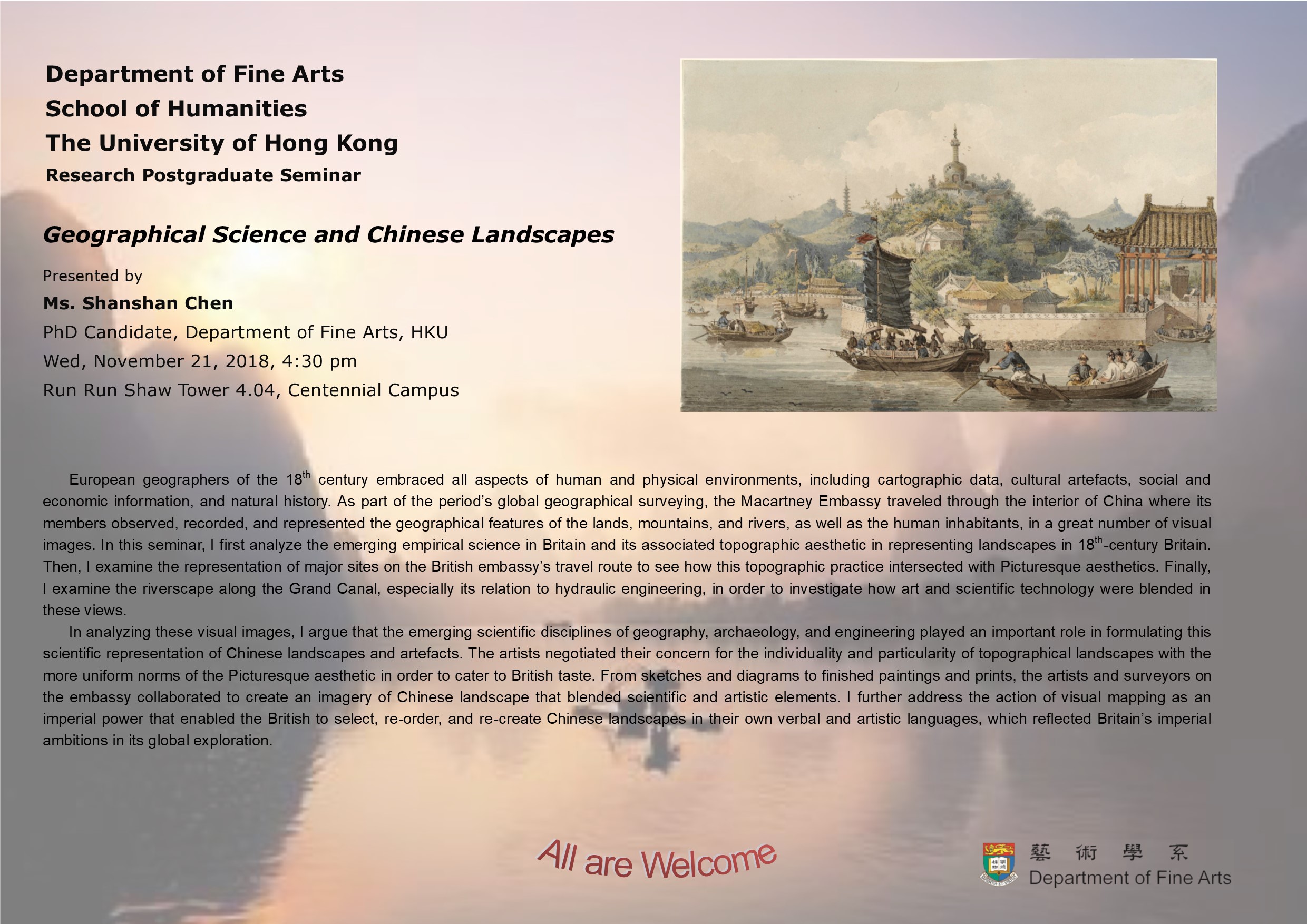

Geographical Science and Chinese Landscapes
November 21, 2018 @ 4:30 pm - 6:00 pm
Geographical Science and Chinese Landscapes
Date: 21 November 2018 (Wednesday)
Time: 4:30pm
Venue: Room 4.04, Run Run Shaw Tower, Centennial Campus
European geographers of the 18th century embraced all aspects of human and physical environments, including cartographic data, cultural artifacts, social and economic information, and natural history. As part of the period’s global geographical surveying, the Macartney Embassy traveled through the interior of China where its members observed, recorded, and represented the geographical features of the lands, mountains, and rivers, as well as the human inhabitants, in a great number of visual images. In this seminar, I first analyze the emerging empirical science in Britain and its associated topographic aesthetics in representing landscapes in 18th-century Britain. Then, I examine the representation of major sites on the British embassy’s travel route to see how this topographic practices intersected with Picturesque aesthetics. Finally, I examine the riverscape along the Grand Canal, especially its relation to hydraulic engineering, in order to investigate how art and scientific technology were blended in these views.
In analyzing these visual images, I argue that the emerging scientific disciplines of geography, archaeology, and engineering played an important role in formulating this scientific representation of Chinese landscape and artifacts. The artists negotiated their concern for the individuality and particularity of topographical landscape with the more uniform norms of the Picturesque aesthetics in order to cater to British taste. From sketches and diagrams to finished paintings and prints, the artists and surveyors on the embassy collaborated to create an imagery of Chinese landscape that blended scientific and artistic elements. I further address the action of visual mapping as an imperial power that enabled the British to select, re-order, and re-create Chinese landscape in their own verbal and artistic languages, which reflected Britain’s imperial ambitions in its global exploration.
Speaker: Shanshan Chen (PhD Candidate, Department of Fine Arts, HKU)



Find us on…